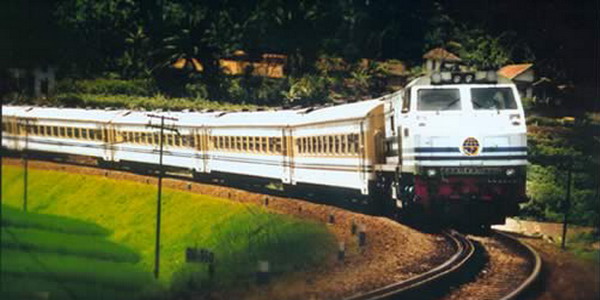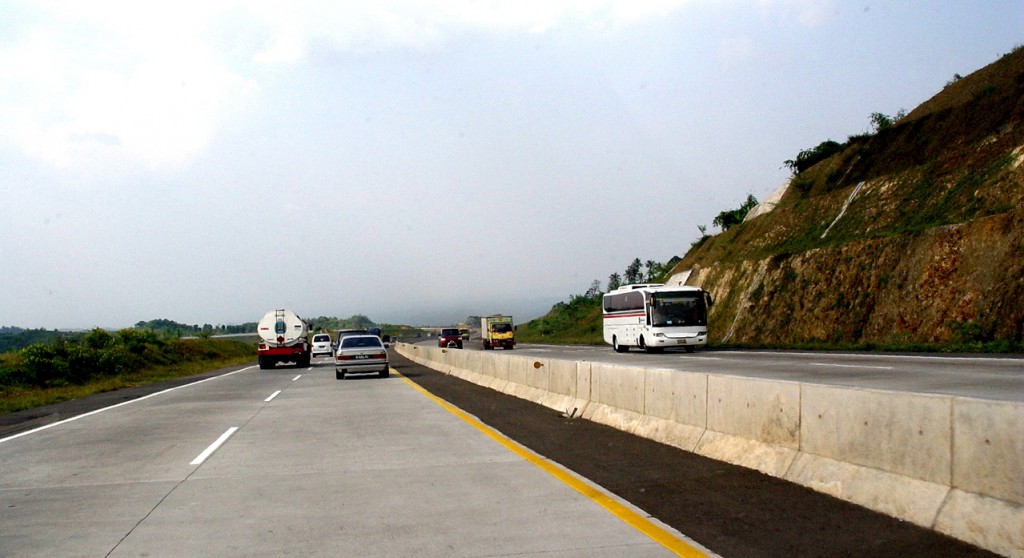Many have learned that Cipularang Toll Road was largely considered as the reason behind the discontinuation of Parahyangan passenger rail service. But limited discussion found on how this could be a key to what is potentially be a government failure in achieving the 26% carbon emission reduction by 2020.
Parahyangan and Cipularang both have something in common, for it is facilitating commuters between Jakarta and Bandung. The different is apparent, however. Commuting between the two cities needs about four hours by rail and one and a half hour by car. Since the year 2005, when Cipularang Toll Road began its service, the occupancy level of Parahyangan had dropped significantly. That is, Cipularang Toll Road seems to be much more attractive to commuters due to its shorter travel time. This is a classic story from the field of transportation. All over the world, access and mobility have been facilitated largely by the use of car. It is all about convenience when it comes to traveling by car.
There are two points worth for a discussion from this Parahyangan-Cipularang case. First, the decreasing occupancy with Parahyangan is because Cipularang has offered more options to public for commuting by cars with maximum convenience. Many literatures suggest that cars are undeniably the most convenience transportation means. Cars are highly popular and, as a matter of fact, it is the extensive use of car that leads to major transportation problems we currently face: congestion, air pollution, and carbon emissions, to name a few. There have been global efforts in moving people from cars to other forms of transportation such as bus rapid transit, light rail transit, bicycle, and programs like car-sharing, high occupancy vehicle (HOV) area. Learning the mode-shift happening in Indonesia that in fact in the other direction from rail to road seems to be not right.
As we are still struggling in mitigating the first point discussed earlier, the second point even looks more problematic. Jakarta and Bandung are the two largest cities in Indonesia and, as other big cities, are highly urbanized. It is likely that more people will move their residencies to these cities and, therefore, more people will travel between both cities. Imagine if current transportation policy continues to support surface transportation with cars as the primary mode, then most likely more cars will be on the road and obviously more carbon will be emitted to the atmosphere.
I am not trying to single out this matter as it is a purely government mistake; even if I am allowed to say so I am not going to. We all realize how bad is our traffic congestion and how we have to comfort our lives around this congestion problem. What we are afraid as a society is to honestly admit our over-reliance on cars and, more importantly, our lack of courage to break and to stop that trend causing the problem. We are all stuck with the convenience offered by cars. Indeed, it is difficult to address the needs of changes: moving out from cars and starting to use mass transportation. A follow up question would be: can our public (mass) transportation infastructure support this expected change? Building a public transportation is not a cheap and short investment. But public transportation infrastructure will not be in place if we never thoughtfully and seriously consider the option. I guess it is not an option anymore since we really need to reduce our carbon emissions.
Transportation is among the largest contributor to the current level of carbon emissions. In the attempt to reach 26% carbon emissions in Indonesia, government indicated its priority in the forestry sector. I indicated in my previous posting that not mentioning transportation sector among the priorities is a mistake. Not paying a serious attention on transportation sector is even worse.
dh

